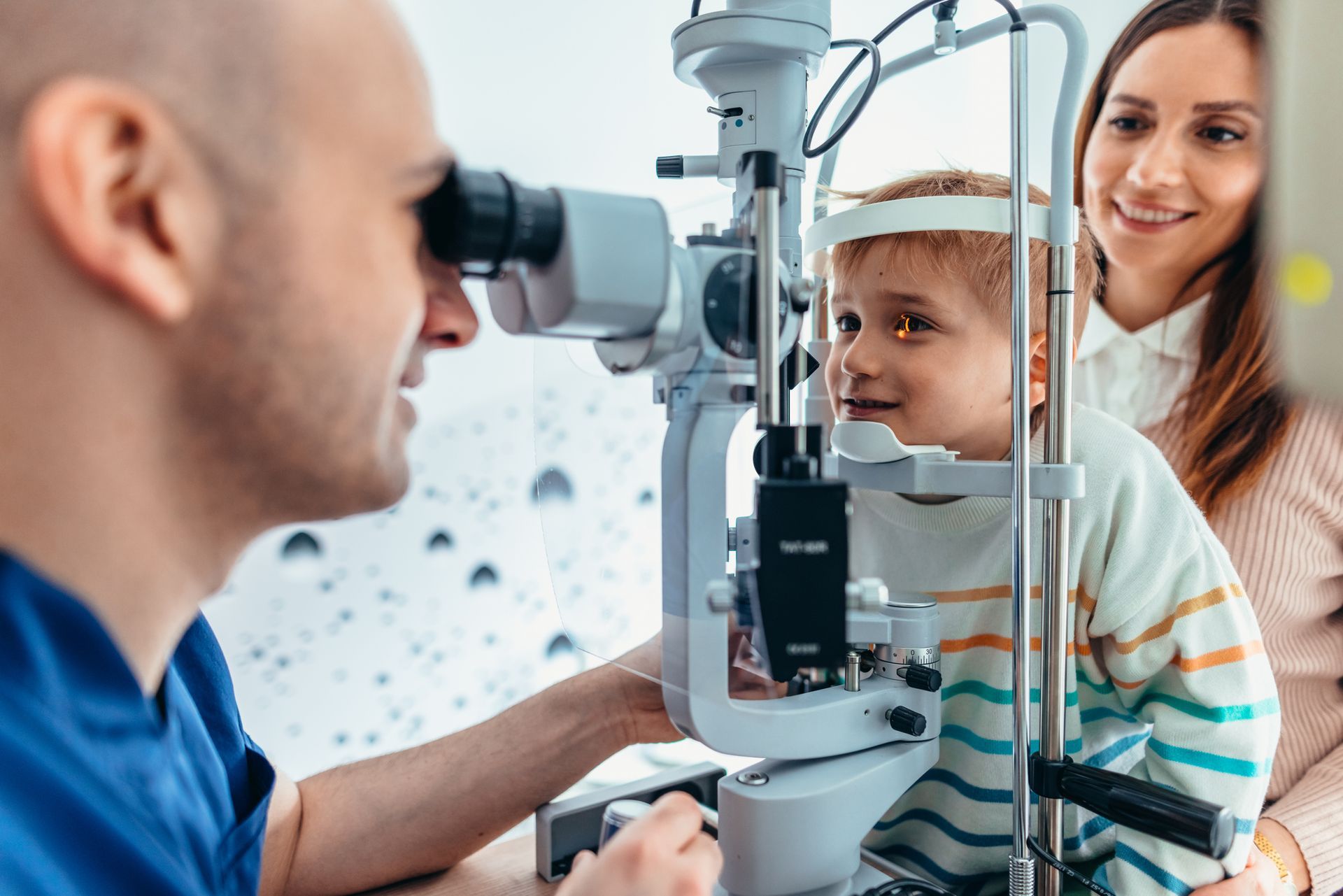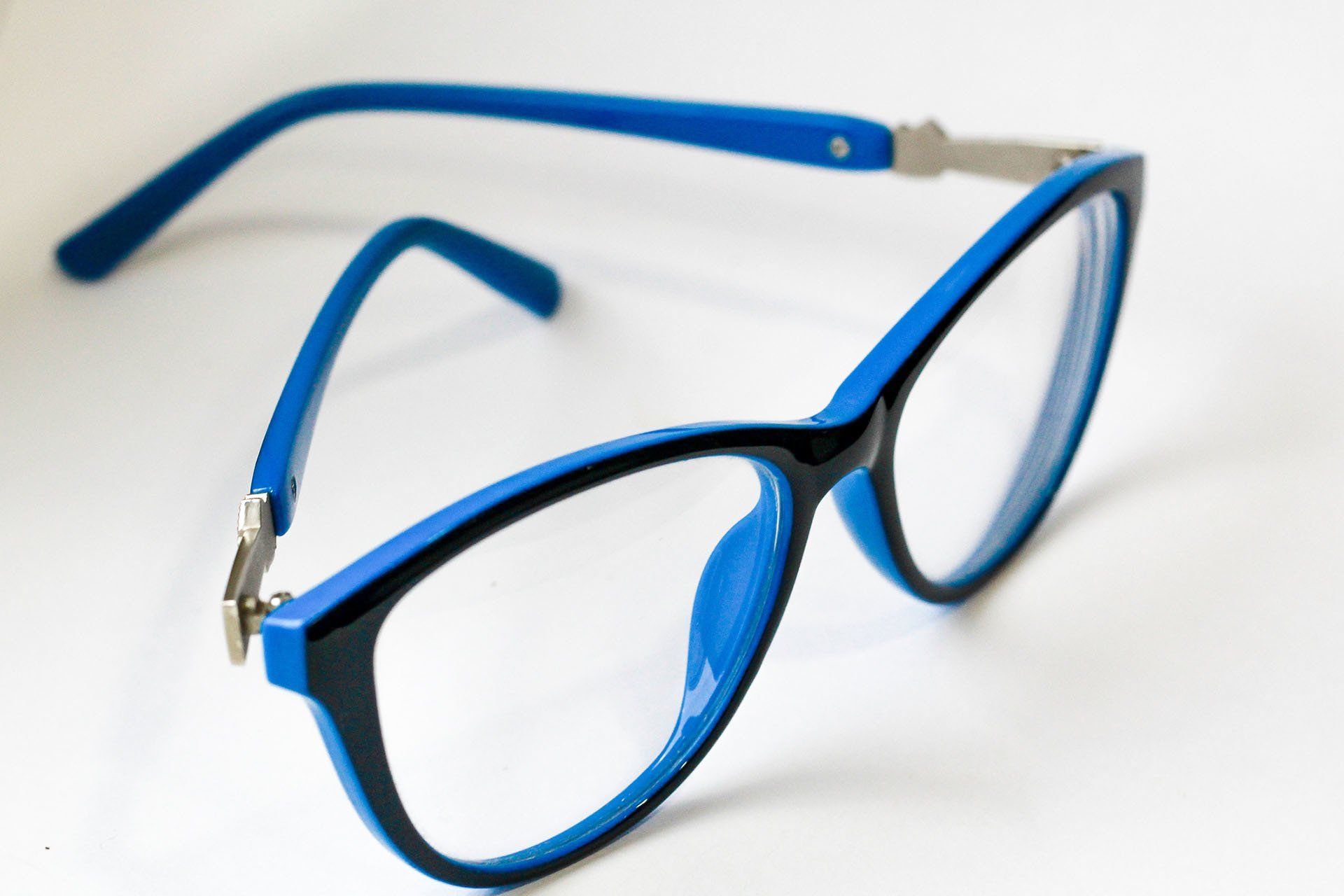Five Eye Care Tips for Allergy Sufferers
January 25, 2018

Do allergies cause your eyes to feel itchy, dry, and irritated? Perhaps they also appear red and puffy. These symptoms are known as allergic conjunctivitis, which is a common response to allergens like pollen, pet dander, mold spores, and dust mites. The number one way to alleviate your symptoms is to reduce your exposure to allergens. Also, follow these eye care tips for allergy sufferers to keep your eyes more comfortable.
1. Switch to Daily Lenses Allergens often build up on the surface of your contact lenses. Even if you clean the lenses carefully, some allergen particles may remain and then be reintroduced to your eyes the next time you insert the lenses. Consider switching to daily lenses, at least during peak allergy season. With daily lenses, you also don't have to worry about protein buildup on the lenses irritating your eyes and exacerbating your allergy symptoms. 2. Keep Glasses On Hand On days when your eyes are especially irritated, don't wear your contacts at all. Switch to glasses, which don't trap allergen particles in your eyes or restrict air flow like contact lenses do. Make sure you have a pair of properly-fitting glasses with lenses in your current prescription strength. Carry them with you daily, and also bring along your contact lens case. This way, if your eyes become too irritated, you can always remove your contacts and switch to glasses partway through the day. 3. Use Medicated Eye Drops While taking oral allergy medications is a good starting point, sometimes you need a little extra help treating allergic conjunctivitis. There are both prescription and over-the-counter eye drops for treating allergies. They contain antihistamines, which work by blocking the action of the proteins your body produces to trigger allergy symptoms. Try over-the-counter eye drops first. If you don't experience relief, talk to your doctor about prescription eye drops for allergy symptoms. Most medicated eye drops require that you remove your contact lenses before use. This is another good reason to always carry your glasses and contact case with you. 4. Apply Cold Compresses When your allergy symptoms become particularly bad, remove your contacts and hold a cold compress against your eyes. You can make a cold compress by wrapping a bag of ice in a small cloth or towel. A washcloth soaked with cold water also works. Close both of your eyes, and then hold the compress gently over them. Only keep the compress in place for 20 minutes at a time. The cold compress helps reduce inflammation and redness around your eyes. Make sure you wash the washcloth or towel after every use to avoid re-introducing allergies to your eyes. 5. Wash Your Hands Always wash your hands thoroughly and completely before touching your eyes. Do so before inserting or removing contacts, before applying a cold compress to your eyes, before inserting eye drops, and before itching or rubbing your eyes. Many patients with allergic conjunctivitis make the problem worse by introducing additional allergen particles to their eyes whenever they touch them. Wash your hands often throughout the day as well. You may touch your face or eyes without realizing it, and washing your hands often reduces the number of allergen particles you introduce to your eyes when doing so. By following the tips above, you can keep your eyes more comfortable in the presence of allergens. If you're in need of new glasses or contacts, visit Fraser Optical to explore our selections. We offer brand name eyeglasses from brands like Flexon, Fossil, and Kate Spade, along with daily wear contact lenses. We also offer eye exams for the whole family and are happy to discuss allergic conjunctivitis and other eye health problems with you.
1. Switch to Daily Lenses Allergens often build up on the surface of your contact lenses. Even if you clean the lenses carefully, some allergen particles may remain and then be reintroduced to your eyes the next time you insert the lenses. Consider switching to daily lenses, at least during peak allergy season. With daily lenses, you also don't have to worry about protein buildup on the lenses irritating your eyes and exacerbating your allergy symptoms. 2. Keep Glasses On Hand On days when your eyes are especially irritated, don't wear your contacts at all. Switch to glasses, which don't trap allergen particles in your eyes or restrict air flow like contact lenses do. Make sure you have a pair of properly-fitting glasses with lenses in your current prescription strength. Carry them with you daily, and also bring along your contact lens case. This way, if your eyes become too irritated, you can always remove your contacts and switch to glasses partway through the day. 3. Use Medicated Eye Drops While taking oral allergy medications is a good starting point, sometimes you need a little extra help treating allergic conjunctivitis. There are both prescription and over-the-counter eye drops for treating allergies. They contain antihistamines, which work by blocking the action of the proteins your body produces to trigger allergy symptoms. Try over-the-counter eye drops first. If you don't experience relief, talk to your doctor about prescription eye drops for allergy symptoms. Most medicated eye drops require that you remove your contact lenses before use. This is another good reason to always carry your glasses and contact case with you. 4. Apply Cold Compresses When your allergy symptoms become particularly bad, remove your contacts and hold a cold compress against your eyes. You can make a cold compress by wrapping a bag of ice in a small cloth or towel. A washcloth soaked with cold water also works. Close both of your eyes, and then hold the compress gently over them. Only keep the compress in place for 20 minutes at a time. The cold compress helps reduce inflammation and redness around your eyes. Make sure you wash the washcloth or towel after every use to avoid re-introducing allergies to your eyes. 5. Wash Your Hands Always wash your hands thoroughly and completely before touching your eyes. Do so before inserting or removing contacts, before applying a cold compress to your eyes, before inserting eye drops, and before itching or rubbing your eyes. Many patients with allergic conjunctivitis make the problem worse by introducing additional allergen particles to their eyes whenever they touch them. Wash your hands often throughout the day as well. You may touch your face or eyes without realizing it, and washing your hands often reduces the number of allergen particles you introduce to your eyes when doing so. By following the tips above, you can keep your eyes more comfortable in the presence of allergens. If you're in need of new glasses or contacts, visit Fraser Optical to explore our selections. We offer brand name eyeglasses from brands like Flexon, Fossil, and Kate Spade, along with daily wear contact lenses. We also offer eye exams for the whole family and are happy to discuss allergic conjunctivitis and other eye health problems with you.
Recent Posts
January 29, 2020
Learn how to prevent and manage pink eye with Fraser Optical’s expert tips. Keep your eyes healthy with these practical, easy-to-follow guidelines.









